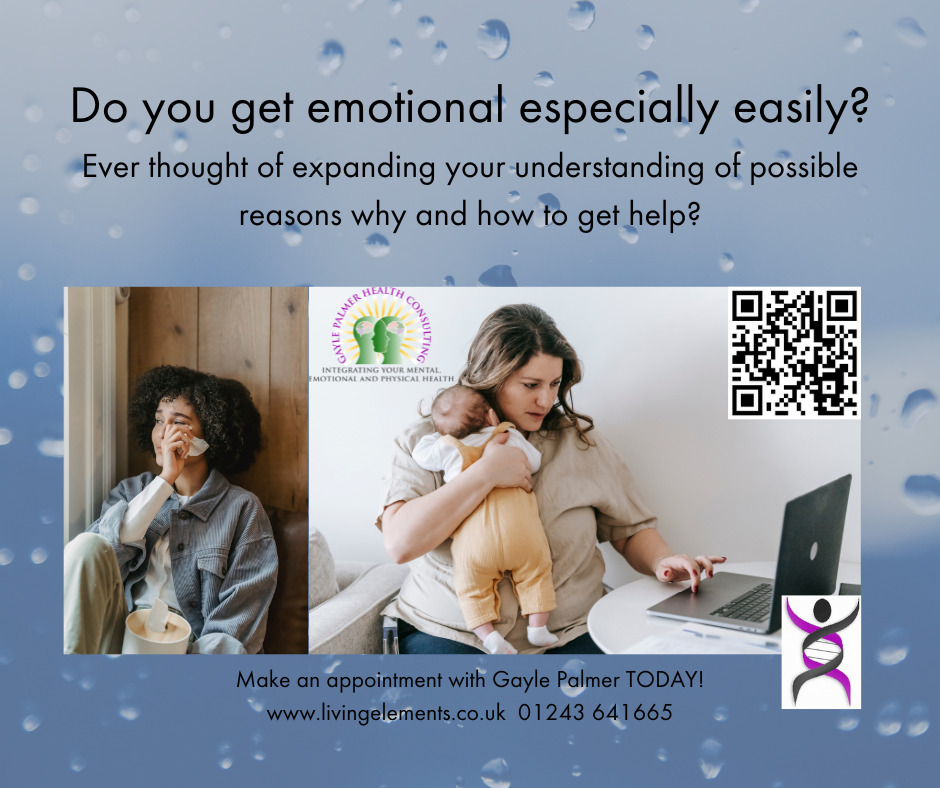I am overly emotional and it’s embarrassing! What can I do?
This question was posed on a local group page, anonymously.
I have explained some of the ways that I am able to help in this less common presentation, if they came to see me. I hope it helps to explain the varied options that I have available to use or recommend.
Hello, I’m wondering if anyone would have any advice please on a pretty embarrassing situation.
I am a woman in my mid thirties and have always been quite an emotional person. However especially over the past few years if I’m talking about something that has emotion attached to it (could be something sad or happy) my eyes well up with tears and I look like I’m going to cry. I find the same thing happening if I am getting frustrated or embarrassed in a situation too.
It’s getting to the point where it is affecting my professional life and I am avoiding having conversations as I know it will evoke emotion and I don’t want to look like I’m crying in front of people!
I know this sounds ridiculous and I’m not even sure if there is anything that can be done, but just wanted to see if anyone had experienced anything similar or had any suggestions that I could try?
This is an excellent question to ask as it brings up many natural mechanisms at work in complex human beings. Here is my reply:
The tendency has increased in recent years of being overly emotional / reactive / teary due to the neurological changes brought about by the pandemic conditioning, in addition to any pre-existing tendencies – empath / ADD / ADHD or other psychological traits.
To help with getting to the bottom of what is going on takes understanding why the autonomic nervous system is reacting how it is – mediated through the vagus nerve (just under the skull) and the sympathetic nervous system – the fear-flight-fight phenomenon.
This can be helped physically with Osteopathy or rebalance the nervous system and hormone balance;
Chemical rebalancing could be through food or drugs (allopathic), herbal remedies or homeopathy and even correct exercise! for hormone and energy regulation and nutritional status
talking therapies eg NLP can be useful to literally reprogramme responses and conditioning and memories which act as triggers.
Various other things can also help – homeopathy or herbalism… but “it depends” on what is right for you which would need a detailed history being taken and many more questions posed.
I would be happy to have a brief initial chat if that’s useful. I am based Living Elements Clinic in Sidlesham.
More info on the website: https://livingelements.co.uk
To book a free mini chat use: https://living-elements-clinic.cliniko.com/bookings?appointment_type_id=343901
Have you got any questions left? I can’t give a definitive answer to this complex poser – as each treatment protocol is designed uniquely for YOU – but it gives you an idea of the differential diagnosis and thinking that goes behind a treatment plan when a client comes to see me. I also cross-refer to other professionals when I know that their input would be useful, and this can include going back to the GP.
Was this interesting? If you know someone else who has a similar concern please feel at liberty to copy this post to them. Thank you. Whilst I may not always be THE most obvious treatment – sometimes the skill is knowing WHO to turn to. It isn’t always the GP!
Your health IS my Priority! Place you healing in my hands.
© Gayle Palmer January 2024

